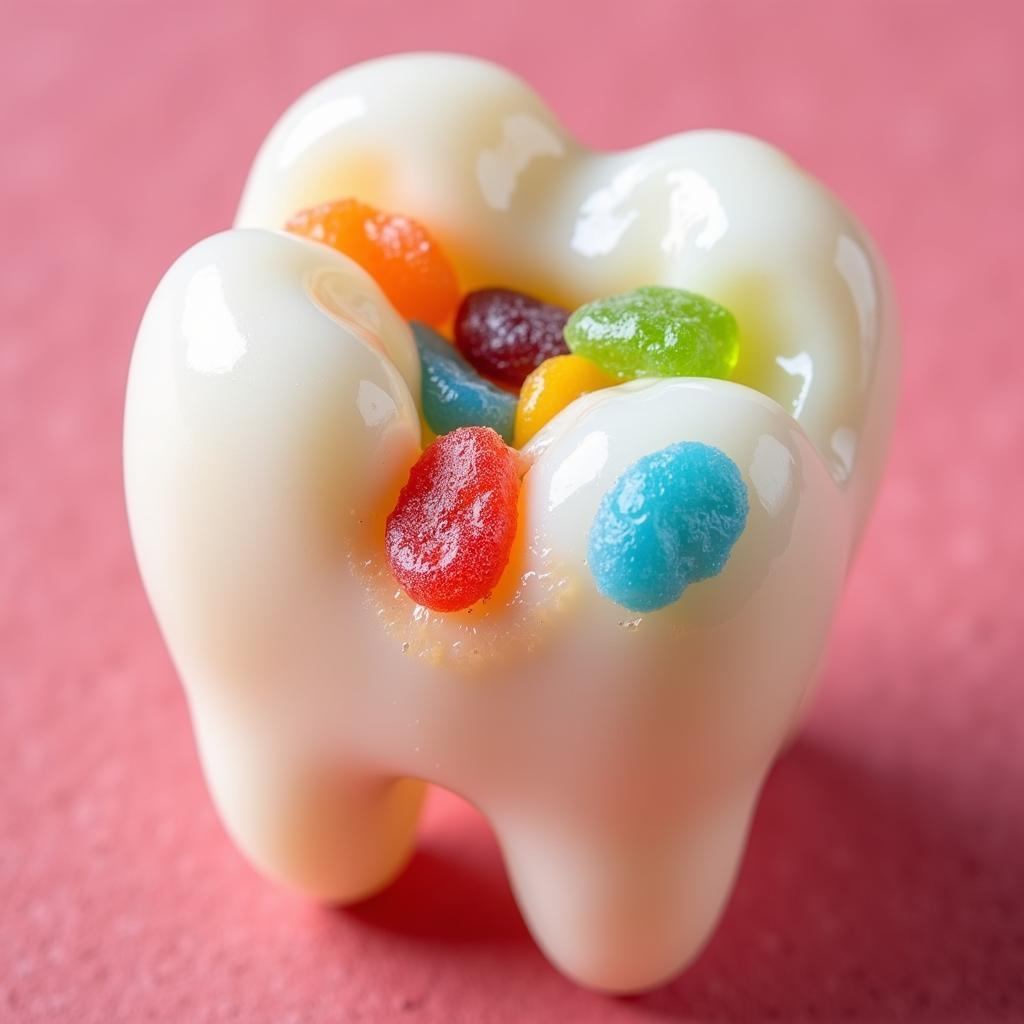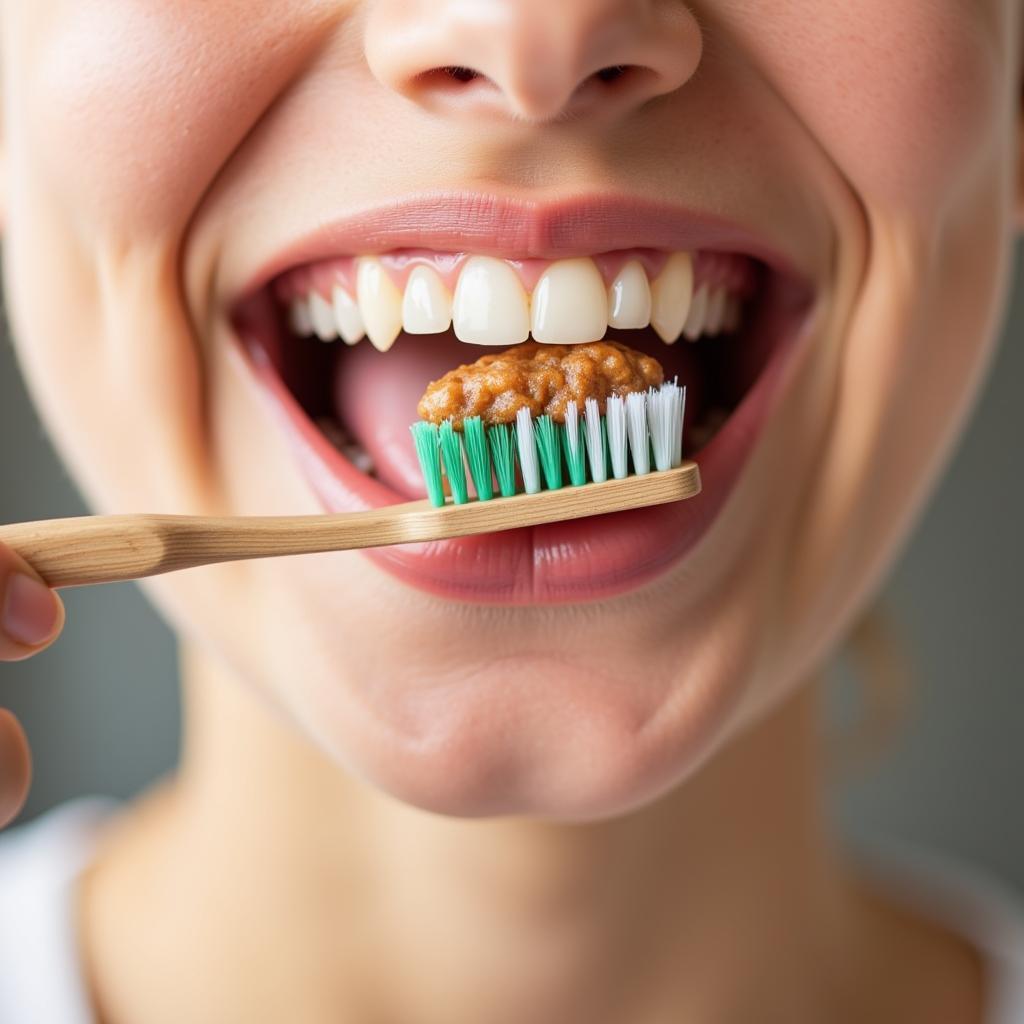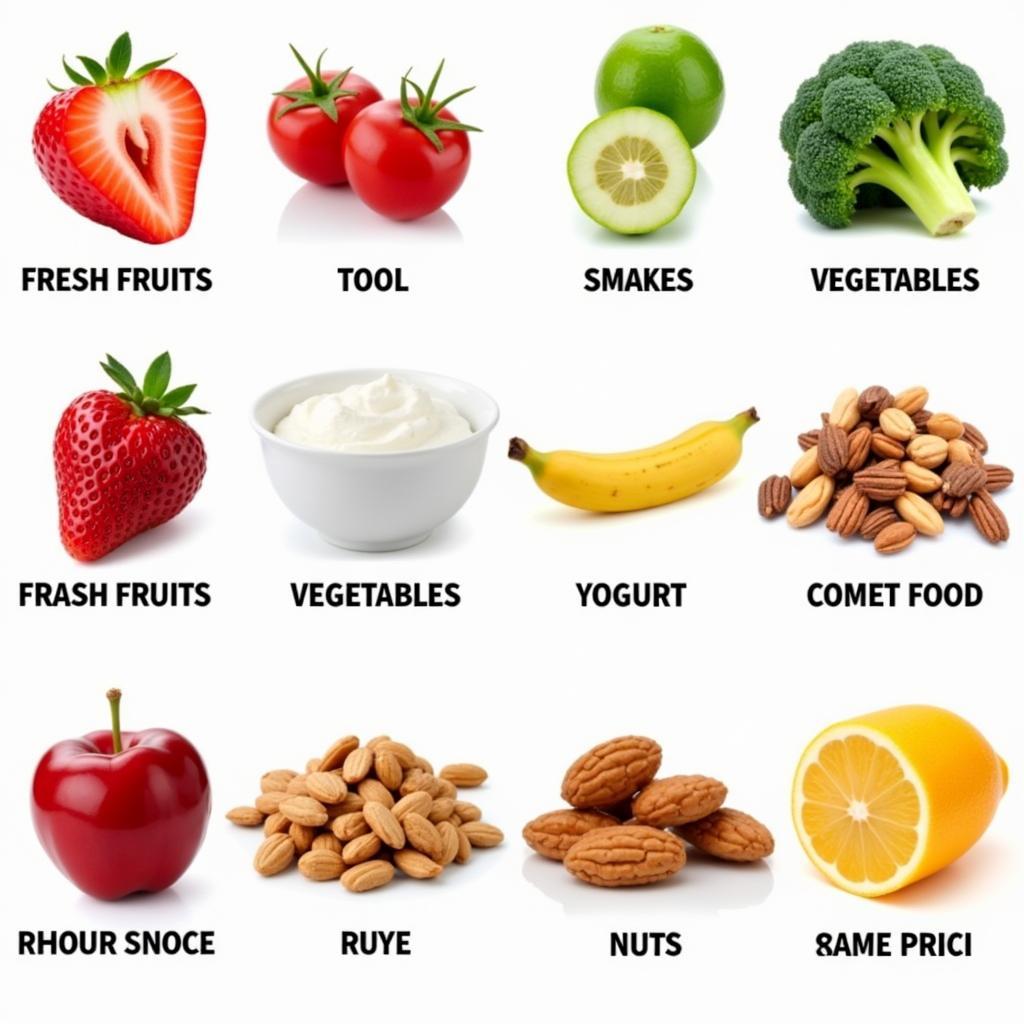Sticky foods can wreak havoc on your oral health. From clinging to your teeth and promoting plaque buildup to increasing your risk of cavities, these sticky culprits are often the main offenders when it comes to dental problems. Knowing which Sticky Foods To Avoid is key to maintaining a healthy, happy smile.
The Sticky Truth About Certain Foods
Certain foods, by their very nature, adhere to your teeth longer than others. This prolonged contact creates a breeding ground for bacteria, leading to a cascade of oral health issues. While a balanced diet is essential, understanding the impact of sticky foods can help you make informed choices. Sugary snacks, candies, and even some seemingly healthy dried fruits can contribute to tooth decay and gum disease. It’s crucial to be mindful of these sticky foods to avoid and adopt strategies to minimize their negative impact.
Avoiding sticky foods can significantly reduce your chances of needing dental procedures. After certain procedures, your diet might need adjustments. For instance, knowing what foods are good for after a root canal can be crucial for healing. You can find some helpful information on foods good for root canal at this link: foods good for root canal.
Which Sticky Foods Should You Steer Clear Of?
A variety of seemingly harmless treats can actually be quite detrimental to your teeth. Let’s delve into the specific sticky foods to avoid:
- Chewy Candies: Caramels, gummies, and taffy are notorious for sticking to teeth. Their sugary composition further fuels bacterial growth, making them a double threat.
- Dried Fruits: While often touted as healthy snacks, dried fruits like raisins, dates, and apricots can be surprisingly sticky. Their concentrated sugar content and sticky texture make them cavity-causing culprits.
- Toffee and Caramel Apples: These seasonal treats combine the stickiness of caramel with the sugar of apples, creating a perfect storm for plaque buildup.
- Pastries and Cakes: Some pastries and cakes, especially those with sticky fillings or frostings, can linger in the crevices of your teeth, contributing to decay.
If you have a toothache, choosing the right food can help minimize discomfort. Take a look at this resource on food to eat when you have toothache: food to eat when you have toothache.
 Sticky candy clinging to teeth
Sticky candy clinging to teeth
How Do Sticky Foods Damage Teeth?
Sticky foods to avoid contribute to dental problems in several ways:
- Prolonged Sugar Exposure: The longer sugary foods stay in contact with your teeth, the more time bacteria have to feast on the sugar and produce acids that erode enamel.
- Plaque Formation: Sticky foods become trapped in the grooves and pits of your teeth, creating a sticky film that attracts and harbors bacteria, forming plaque.
- Difficult Removal: These foods are challenging to remove even with regular brushing, increasing the likelihood of plaque buildup and subsequent cavities.
Certain dental procedures might require you to switch to softer foods. If you’ve recently had a gum graft, this article can guide you on suitable options: soft foods to eat after gum graft.
Tips for Minimizing the Impact of Sticky Foods
While it’s best to limit your intake of sticky foods to avoid dental issues altogether, there are ways to minimize their impact if you do indulge:
- Rinse Your Mouth: Swishing with water immediately after consuming sticky foods can help dislodge particles and reduce sugar residue.
- Brush and Floss Thoroughly: Pay extra attention to cleaning your teeth after eating sticky foods, ensuring you remove all trapped particles.
- Chew Sugar-Free Gum: Chewing sugar-free gum can stimulate saliva production, which helps neutralize acids and wash away debris.
 Brushing teeth after eating sticky food
Brushing teeth after eating sticky food
What if I Crave Something Sweet?
“Cravings are normal,” says Dr. Emily Carter, a renowned dentist specializing in preventative dentistry. “But choosing wisely is key. Opt for less sticky alternatives like fresh fruits, yogurt, or dark chocolate.”
Finding suitable food options after surgery can be challenging. This resource might be helpful: good soft foods after surgery.
Are All Sticky Foods Bad?
“Not all sticky foods are created equal,” adds Dr. Carter. “Some naturally sticky foods, like oatmeal, can be beneficial for overall health. It’s the combination of stickiness and high sugar content that poses the greatest threat to your teeth.”
Sometimes, even essential items like food wrapping paper can impact our oral health indirectly. Here’s some information on food wrapping paper: food wrapping paper roll.
 Healthy snack alternatives to sticky foods
Healthy snack alternatives to sticky foods
In conclusion, understanding which sticky foods to avoid is crucial for maintaining optimal oral health. By making conscious choices and adopting healthy habits, you can protect your teeth from the damaging effects of these sticky culprits and enjoy a healthy, confident smile.
FAQ
-
What are the worst sticky foods for my teeth? Chewy candies, caramels, and dried fruits are some of the worst offenders.
-
How can I satisfy my sweet tooth without harming my teeth? Choose less sticky options like fresh fruit, yogurt, or dark chocolate.
-
Why are sticky foods bad for my teeth? They cling to teeth, promoting plaque buildup and increasing the risk of cavities.
-
What can I do after eating sticky foods to minimize their impact? Rinse your mouth with water, brush and floss thoroughly, and chew sugar-free gum.
-
Are all sticky foods bad? No, some naturally sticky foods like oatmeal can be part of a healthy diet. It’s the combination of stickiness and high sugar that is problematic.
-
How often should I visit the dentist? Regular checkups, typically every six months, are recommended.
-
What are some signs of tooth decay? Sensitivity to hot or cold, toothache, and visible discoloration are potential signs.
More Questions?
Do you have more questions about oral health or specific dietary concerns? Consider exploring these topics: diet and dental health, managing sugar cravings, and choosing healthy snacks.
Need Help?
Contact us for support: Phone: 02437655121, Email: minacones@gmail.com. Visit us at 3PGH+8R9, ĐT70A, thôn Trung, Bắc Từ Liêm, Hà Nội, Việt Nam. We have a 24/7 customer service team ready to assist you.